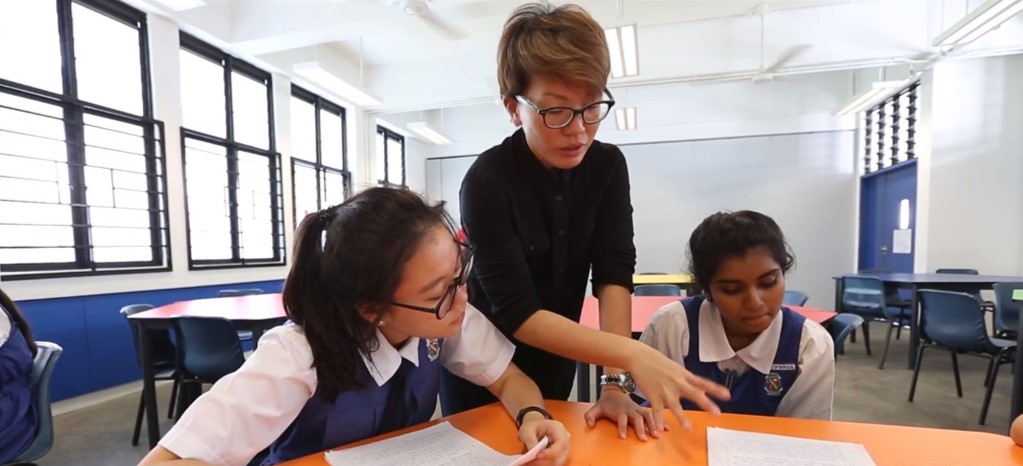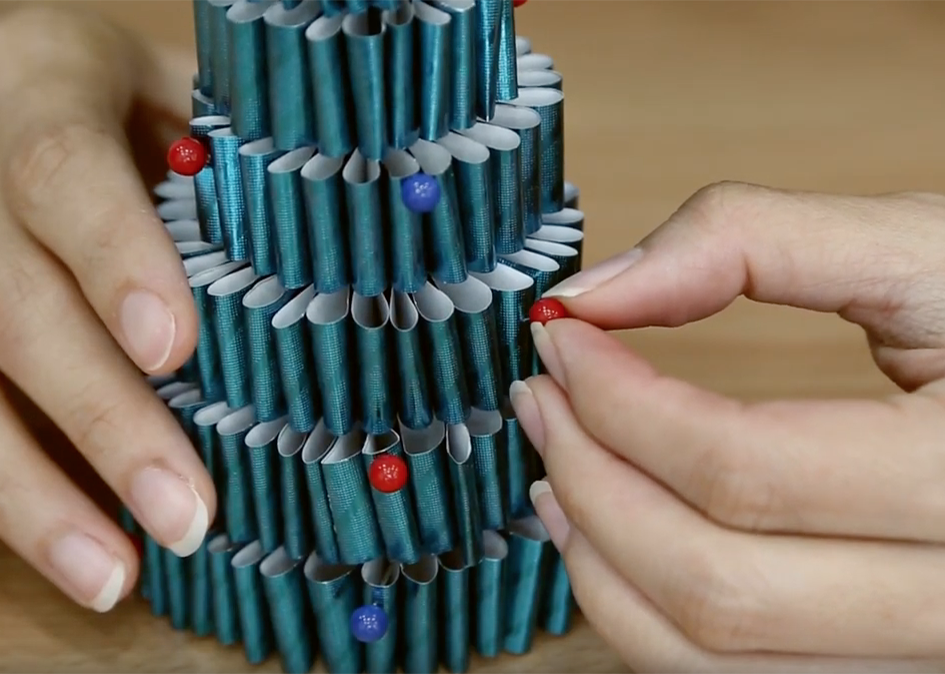Setting off in five different directions for the morning school run may seem counterintuitive, but for Mr Chris Yeo, CEO at DOKU, a B2B payment platform, this makes perfect sense.
He and his homemaker wife, Elsa, view each of their five children as unique, who will thrive when in a school environment best suited to each of them. Their brood includes 16-year-old triplets Joshua, Lucas and Theodore; 14-year-old Aaron (Secondary 2); and 9-year-old Beth (Primary 3).
“It boils down to two basic things: The interest of the child, and academic fit and ability. Because of the first bucket, we are always trying to find out what the interest of each child is by exposing them to a wide variety of activities when young and watching to see if they enjoy it or not,” says Mr Yeo.
All the children went to Nanyang Primary School, where Mr Yeo is an alumnus. But when it came to choosing a secondary school, the Yeos sought to match schools to their children’s emerging strengths and needs, as Mrs Yeo prepped herself for some crazy back-to-back chauffeuring duties.
Here, Mr Yeo shares the steps they took to get a better school fit:
1. Start your research early
The research started when the children were in primary school. As each school offers different programmes, subjects and co-curricular activities (CCAs), the Yeos talked to friends with older children to learn more about the choices available. They then shortlisted secondary schools with strengths in their children’s areas of interests, to further bring out their potential.
2. Get to know your child
Mr Yeo believes in spending quality time with the children, and trying out new and varied activities together, which brings out their aptitudes and personalities.
Among his triplet teens, Theodore preferred to have more structure to his day and consistent checkpoints to his school year. He also liked group activities. His parents agreed that the O-level academic track would suit him, and as the Yeos are Christians, they encouraged him to apply to Geylang Methodist School (Secondary) and join The Boys’ Brigade as a CCA.
Theodore would go on to enjoy the uniformed group’s activities and benefit from its leadership opportunities, even snaring the Boys’ Brigade Founder’s Award, the group’s highest award for achievement.
.jpg) Theodore (second from right) was awarded the Boys’ Brigade Founder’s Award, the highest award for the uniformed group.
Theodore (second from right) was awarded the Boys’ Brigade Founder’s Award, the highest award for the uniformed group.
His triplet brother, Joshua, on the other hand, displayed a talent in art from young. When it was time to pick a secondary school, they opted to apply for Direct School Admission (DSA) to the Art Elective Programme (AEP) at National Junior College. DSA refers to a scheme that allows students to enrol at a school based on their talent in the school’s stipulated sports, CCAs and/or specific academic areas.
Later, younger brother Aaron would also take the DSA route for the AEP, but this time to St Joseph’s Institution, as his parents felt that with him being quiet and shy, he might be better suited to a single-gender school that would allow him to grow and interact at his own pace.
3. What do they enjoy? Look for the clues
His children were exposed to a range of activities since young, but when he looked close enough, there were always hints of what his children really enjoy, Mr Yeo observes.
For example, while all his children enjoyed colouring books and drawing, Joshua and Aaron seemed more enthusiastic about it, and produced better works too.
 Aaron (above) and Joshua’s early interest in art led to the Yeos’ decision for them to apply to schools with an Art Elective Programme.
Aaron (above) and Joshua’s early interest in art led to the Yeos’ decision for them to apply to schools with an Art Elective Programme.
“At a recent school holiday family outing where we did a wall-climbing activity, Aaron was very flexible and climbed faster and better than his siblings. We are now planning to start him on regular climbing classes,” Mr Yeo adds.
“Everyone has inherent talent and passion. We can ignite that passion by providing opportunities and supporting those interests and talents,” he says. “The worst thing is to encourage them in an area that they have no interest, passion, or talent at all. That’s why we customise our support for each child, as everyone is created differently.”
4. Definitely, go beyond the academic strengths
The Yeo family is a sporty one — the children started attending multi-sport activities as young as 3 and 4 years old. They went to a weekly class where they experienced sports like soccer, rugby, volleyball, racket games, baseball, and softball. This has helped with their physical development and given them a chance to see which sport they are good in.
 The Yeos enjoy sports as a family, an each child’s talents emerged with time. They picked a school for Lucas (above), one of the triplets, for its Badminton CCA.
The Yeos enjoy sports as a family, an each child’s talents emerged with time. They picked a school for Lucas (above), one of the triplets, for its Badminton CCA.
“This weekly organised sports activity was to get them active and expose them to a large variety of sports. That’s how Lucas (the third of the triplets) ended up gaining DSA to Anglo-Chinese School (Barker Road) with badminton, as we saw that he had some potential and talent in it,” he says.
Besides participating in sports, the children also attended cultural events like music concerts, plays, and art and music classes. Another area of exposure is to maker or building activities. It started with their kindergarten having Maker Days, where they collected cardboard and made their own costumes.
As the children grew, this progressed to more STEM-related tinkering, where they had exposure to coding and building in the hardware and electronics area, such as working on circuit boards and basic soldering to making a light switch or a simple gaming device. This broad exposure has been helpful, even if the children don’t end up pursuing a particular sport or interest.
He also stokes their curiosity. “Two years ago, when the concept of metaverse first came out, I would play around with the technology at home, using my account to explore what can be done with different platforms. When I found it safe, I allowed my children to also explore that within the safety of a sandbox. Some of my children have gravitated towards it and tried it out.”
Adds Mr Yeo: “They enjoy exploring new things. They have learned a lot this way and also gained valuable experience. I’ve had a secret ambition to have a family band, and two years ago, my family members were either learning guitar, drums, or keyboard. But after a few months, no one was really interested. But I’m still hoping!”
5. Be ready for shifts and surprises
“When they were younger, we tried to do everything together,” Mr Yeo explains. But as the boys grew older, they had their say in their choices of activities and courses. That was when their paths started to diverge.
Beyond the O-level examinations, the 16-year-old triplets may take different educational paths again. Joshua will continue on his Integrated Programme (IP) journey to sit for the GCE A-Level examinations, while Lucas has discovered a passion for computing, and was accepted through the Early Admissions Exercise (EAE) into a computer science course at a polytechnic, while Theodore is deciding on his next step after receiving his O-level results.
As for Beth, she’s still in exploration mode. She is currently taking squash and music classes, and the good news for Mr Yeo’s band dreams is that she has begun to enjoy playing the piano.
6. Their character comes first – it’s how Mr Yeo hires for senior roles at work
Besides finding the best educational pathway for each child, Mr Yeo is mindful that nurturing their character takes precedence. That to him means growing them in their values and morals, and to be resilient and humble.
Being in the technology industry, having worked before at Grab’s financial services arm and at Paypal, he finds that functional skills are important for technical roles. But when hiring for more senior roles, more important considerations are character, and soft skills like verbal communication and people skills.
“When hiring someone at the early stage of a tech career, there’s an 80% focus on technical skills, and 20% on character and soft skills,” he explains. “But for senior roles, the focus reverses to become 80% on EQ [emotional quotient], character and soft skills, and 20% on technical skills.”
“At home, we try to inculcate the value of integrity and a strong moral compass for them. I make sure I walk the talk, how I talk to them and how I live out a life I want my children to emulate. One example is humility; I try to show my children that there are many things I don’t know about, and that I’m continually learning.” How does he demonstrate this? “I try to read up on various topics, and leave books lying around a lot,” he says with a smile.
“Education is not just about grades or books, it’s really about everything else too. Beyond surviving and thriving in their studies, it is about character, integrity, humility, and the ability to interact and communicate.
“As parents, we are always wondering if we are bringing up our children in the right way and getting the mix right,” he says. What guides him is to look beyond the short-term, to what is good for a lifetime.



.jpg)


